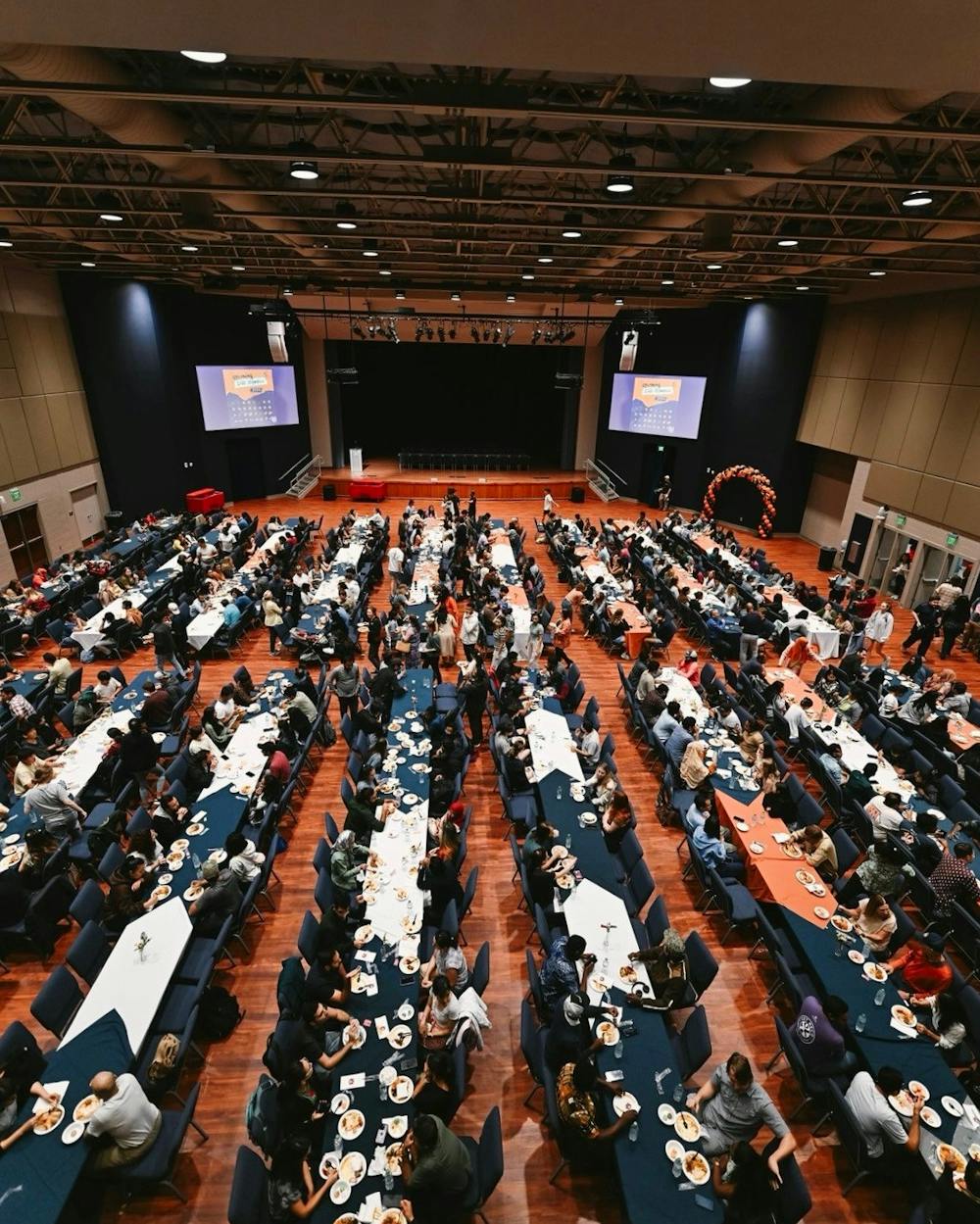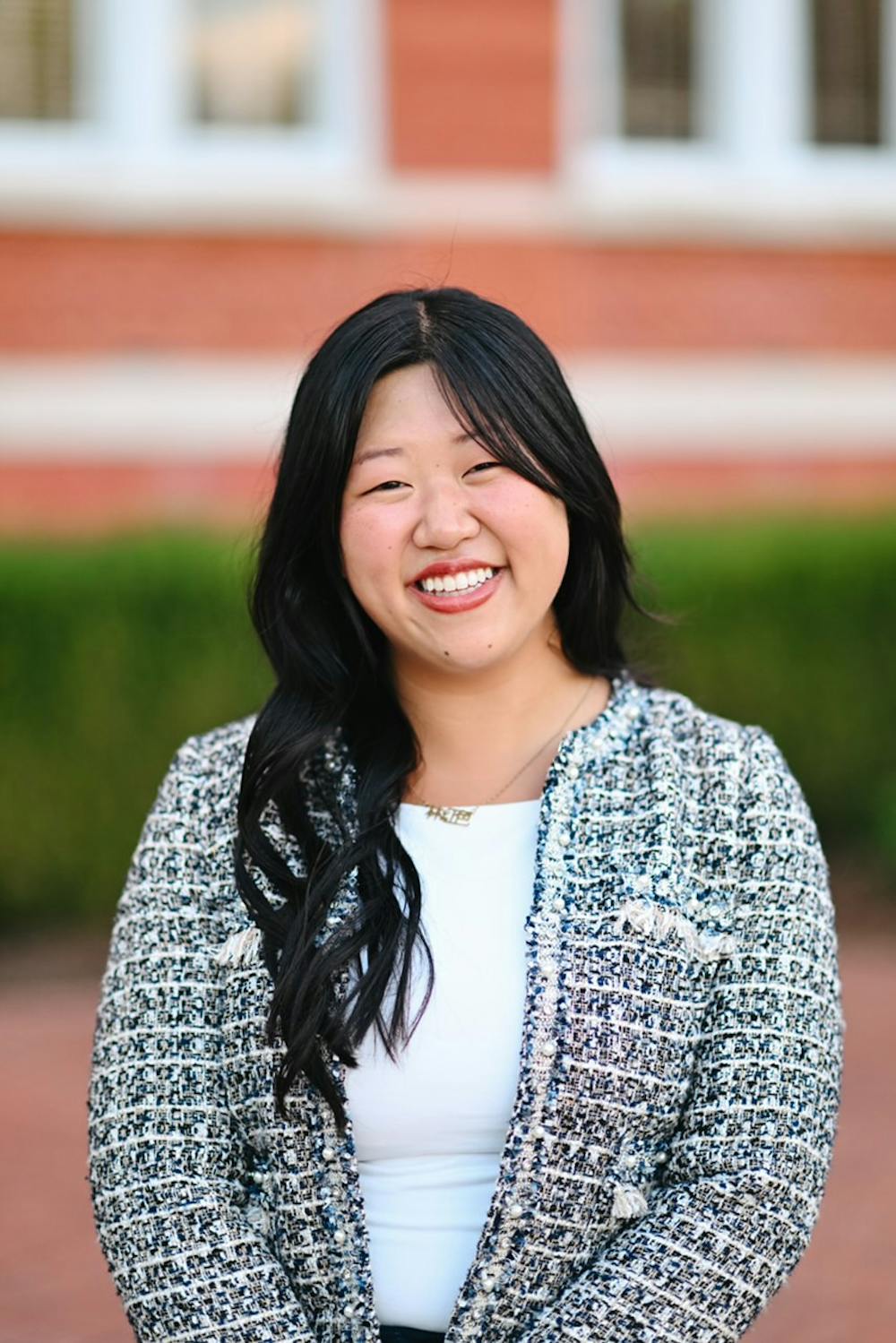Growing up as one of the few people of color in her small, rural town cultivated a sensitivity in Bren Wells for people who feel like they don’t belong. When she got to Auburn University, she realized this passion and put it into practice by leading the International Student Organization (ISO).
Wells was adopted from China at a very young age, and she grew up in Red Bay, Alabama — a predominantly white community. She knew she loved science, helping people and learning about different cultures. She was self-driven and curious; and she eventually decided on Auburn University as a first generation college student.
Her extracurricular involvement and exceptional community, however, were not immediate. When Wells first got to Auburn, she realized it was a lot different than her Red Bay High School experience. Classes were big. Content was challenging. Before she realized it, her GPA was struggling. She felt lonely and overwhelmed.
Noticing groups of international students sticking together and groups of American students hanging out as she walked about campus, she didn’t know which group she should try to befriend. She didn’t see herself as “belonging” to the international student friend groups, but she also found it difficult to break into many of the American friend groups which carried into Auburn from high school. For months, she kept both options at arm’s length.
“I'm not international, so I haven't lived the experiences that they have. But if you wanted to get really deep with it, I guess you could also pair it with perpetual foreigner syndrome,” Wells explained. “A lot of Asians and Asian Americans don't feel like they belong just because everyone kind of sees them as a foreigner.”
It was in Elementary Chinese I a few months into her freshman year when Wells made her first connection to Auburn’s International Student Organization. One of her classmates started inviting her to ISO meetings. However, Wells said she declined or flaked every time because she felt insecure not being an international student, and she was afraid people wouldn’t accept her.
The next semester, Wells happened to run into that same classmate. They struck up a conversation, and she invited Wells to ISO’s “social hour,” which is a weekly meeting hosted by a particular race, nationality group or club. Hesitantly — but at last — Wells accepted the invitation.
The first meeting Wells attended was hosted by the Vietnamese Student Association with food, music and a slideshow explaining aspects of their culture. The room was swirling with colors: people of different nationalities, ages, personalities and interests.
Wells describes the moment she entered into room 2222 of the Melton Student Center that evening as her favorite in her college career.
“It was just, just so nice to see,” Wells paused, getting emotional, “the community. Everyone together, learning about everyone else, it made me realize that we're not all that different.”

After that first meeting, Wells was all in. She kept returning, making more friends and taking on more responsibility in the organization.
The spring of her freshman year, she applied and became involved as a committee member until the spring of her sophomore year. She served as the vice president of communications and marketing until the spring of her junior year, and she was elected as the organization’s president for the following year.
“My advisor doesn't know of any other American students that were president,” Wells said, with a shy humility. “And my entire time — which hasn't been super long — I've been the only American student in leadership.”
Wells’ unique perspective on being American with a special awareness for being international makes her the perfect person to fulfill ISO’s mission statement: “To improve multi-national understanding and promote relationships between people of different cultures.”
She has a desire to know people beyond the surface level of name, major and what country they are from, which motivates her to spend countless hours listening and learning to their perspectives and trying to create a sense of belonging for them.
“Bren always motivates me to step out of my comfort zone, especially since I’m an international student,” said Kelsey Huỳnh, current vice president for outreach of ISO. “There have been times when I've felt a little shy and hesitant to join conversations, but she always encourages me and helps me feel more at home in this new environment.”
Because international students at Auburn face challenges in transportation, connection and campus orientation, Wells sees ISO as a chance to “do something.”
“I have never seen an ISO president so actively involved in major international student events outside the university. Bren has worked tirelessly to promote ISO and foster connections with international students across various platforms,” said Akila Abesinghe, ISO’s Student Government Liaison and Head of the Executive Council.
One of the biggest problems, as Wells sees it, starts with the orientation international students get. She believes in the power of the Auburn Family, and she sees education about traditions as a key part of becoming a member of that family.
International students don’t go through the same Camp War Eagle freshman orientation program that all the other students go to the summer before coming to Auburn. The international student orientation only covers basic United States information like visas and bureaucratic processes.
They don’t get a campus tour of Auburn’s history and buildings. They don’t learn about the resources Auburn has to offer. They don’t learn about Auburn pep rally cheers. They don’t learn that they can get involved in organizations besides ISO. In some cases, they don’t even learn who Auburn’s mascot, Aubie the Tiger, is.
Wells believes these are key parts of the Auburn experience. She believes that bringing international students into this part of the Auburn Family will enable them to truly become invested and find community. She knows she can’t easily change the infrastructure of Auburn University, but she does seek to advocate for a sense of belonging, a source of connection and friendships which are accessible.
One of the endeavors she is most proud of from her presidency is the fall 2024 Peace Dinner, a dining experience with 15 different cuisines and over 1,000 guests made up of international and American students, teachers and families. The goal is to create multinational understanding and bridge the gap between international students and everyone else. ISO hosts this event every year, but Wells said that this year went “above and beyond [her] expectations.”
After months of planning and promoting, Wells said that when the evening finally came, she found herself just standing still and witnessing the fruits of her labor: people hugging or introducing themselves, guests tasting new food and the sound of laughter filling the ballroom.
“A lot of students that we work with so often seem to be on the outskirts of what is traditionally seen as opportunity, but to see everyone come out and be true equals was just incredible,” Wells said.
Wells has other visions and initiatives that she and her team are fighting for during the last few months of her presidency, such as a more comprehensive orientation experience and more student resources for international students.
At first, she saw herself as someone disqualified from connections with both international students and American students. However, this unique perspective actually brought her closer to both groups. Because of this special dynamic and deep-seeded sensitivity, Wells has been a powerhouse of a leader and advocated for belonging in a very special way.
Do you like this story? The Plainsman doesn't accept money from tuition or student fees, and we don't charge a subscription fee. But you can donate to support The Plainsman.





